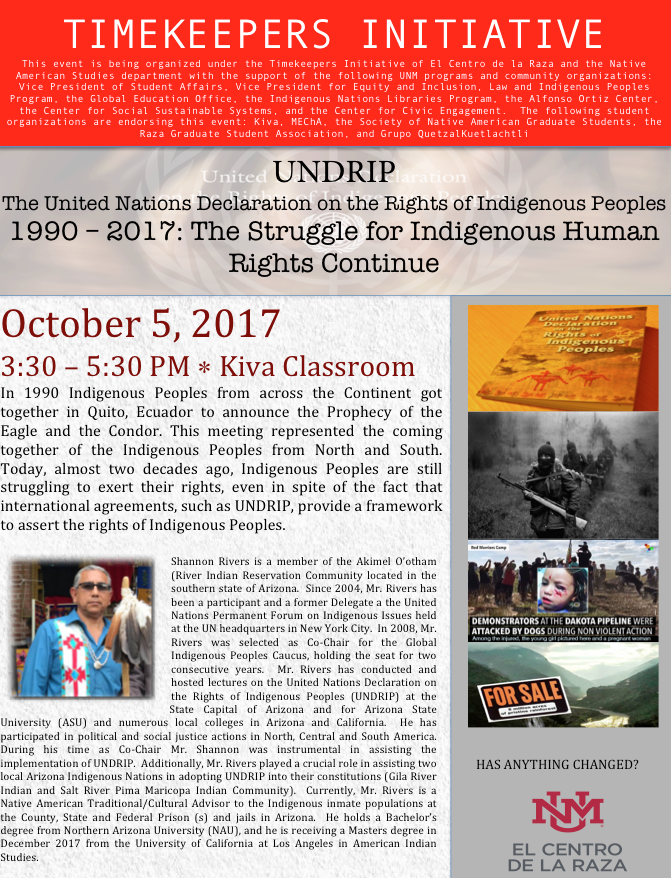The United Nations Declaration on the Rights of Indigenous Peoples 1990-2017: The Struggle for Indigenous Human Rights Continue
--Event--

Start Date: Oct 05, 2017 - 12:00am
Location: Kiva Classroom
An audience of over 50 students, staff, faculty and community members attended the forum.
- Prof. June Lorenzo, from the UNM Law School, spoke about the legal implications of UNDRIP and the importance of having legal language that can be used to protect Indigenous Peoples
- Mr. Shannon Rivers, Tohono O'odham leader and UCLA Master’s student, discussed the politics of resistance that emerge from the affirmation of Indigenous Peoples rights
- Dra. Teran, Postdoctoral Fellow at UNM’s Native American Studies department, addressed the role of women in developing this important resolution of the UN General Assembly, as well as the participation of Indigenous Women in the creation of the United Nations Declaration on the Protection of Traditional Knowledge associated to Biodiversity
- Jorge Garcia, Senior Program Manager of UNM’s El Centro de la Raza, gave a brief overview of the Indigenous Continental Movement and its 30-year effort leading to the resolution

